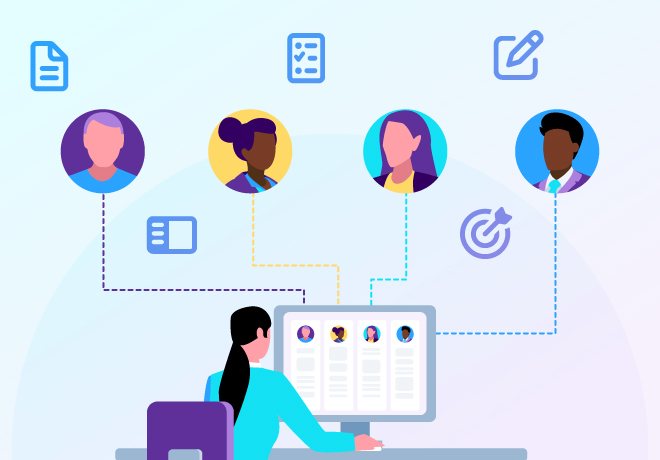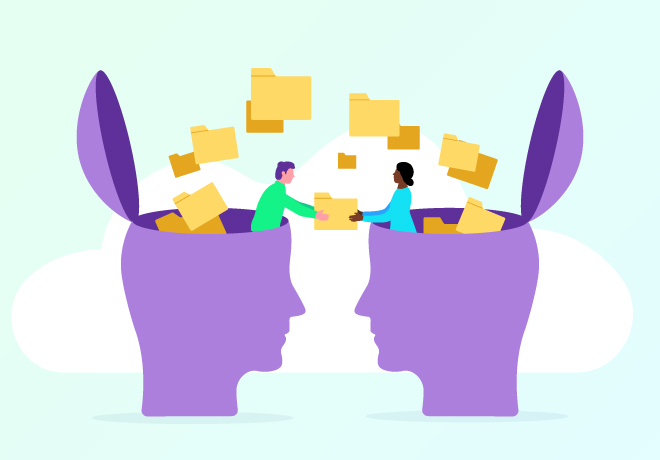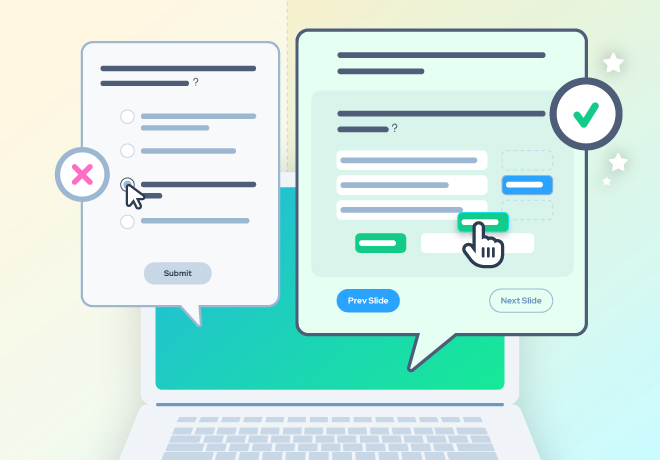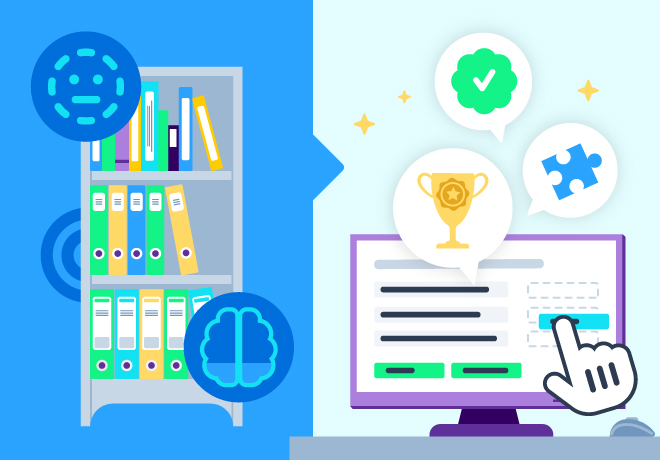.jpg)
What is a learning record store?

Related articles
Get valuable eLearning insights to your inbox.
Listen to Neovation’s Demystifying eLearning podcast generated with NotebookLM!
Listen to our podcast on your favorite platform!
In the early days of eLearning, your online training ecosystem may have revolved around your LMS — learning management system — or consisted entirely of an LMS. But the online training landscape is changing to accommodate a broad variety of learning platforms and strategies. Your online training ecosystem may well include a learning experience platform (LXP); a microlearning platform; various social and collaborative learning tools — and a place to gather and store learning data collected from all of these as well as other online and in-person learning activities. That place is likely to be an LRS — a learning record store.
The LRS is part of an xAPI ecosystem, which enables you to collect learning data from an enormous variety of places where learning occurs. The xAPI standard makes it possible to create statements about learning activities, such as viewing a video, reading an article, completing an activity, or participating in a simulation, far beyond the course completions, engagement time, and test scores that your SCORM-based LMS gathers. You can also collect data on activities that occur in a much larger number of platforms and learning spaces — anything from a mobile app to a CPR dummy to a kiosk on your warehouse floor.
The LRS collects all learning activity data
.jpg)
Any tool or platform in your ecosystem that collects data on learning activities, including your LMS, will send that data to the LRS.
Using an LRS in an xAPI-compliant online training ecosystem empowers your L&D strategy: Most LRS platforms include sophisticated reporting and analytics features as well, making the LRS an essential component in a data-driven training strategy.
Once your various online and in-person training activities are recorded in the LRS, the LRS might:
- Share the data with other systems, facilitating adaptive and personalized training
- Enable powerful analytics using data from across the organization
- Provide data sets useful for correlating training with performance and business data
… and much more.
The LRS works with the LMS
Your LRS can be integrated with your LMS. It can also be configured to control access to records and to determine which tools and platforms can create or access records.
While both the LRS and the LMS might include analytics and reporting abilities, the LRS does not replace the LMS. Most LRSs do not offer the user and course content management functions of an LMS, or the advanced certification, scheduling, reminders, discussion forums, and quizzing abilities a full-featured LMS will offer.
Do you need an LRS?
Whether you need to add an LRS to your online training ecosystem depends on your training strategy and goals. If you have tools in your ecosystem that generate xAPI statements, you probably need an LRS. If you plan to expand your training strategy beyond SCORM-compliant tools and platforms — and you want to be able to capture and use data on those learning activities, you probably need an LRS. If your training occurs in a small number of places or you have only a small number of learners to track, you probably do not need an LRS.
If you have questions about whether you need an LRS — or any other questions about developing your training strategy and ecosystem — connect with a learning consultant at Neovation Learning Solutions today.

An experienced writer, editor, tech writer, and blogger, Pam helps you make sense of learning science and eLearning technology. She provides information you can use to drive improvements in your training effectiveness and ROI.
Become part of our L&D community
We publish a new learning hub article — full of useful, practical topics — weekly.
Not sure where where you want to start? Jump into one of our recently published articles and see where it takes you!








-svg.svg)
-svg.svg)
-svg.svg)
-svg.svg)